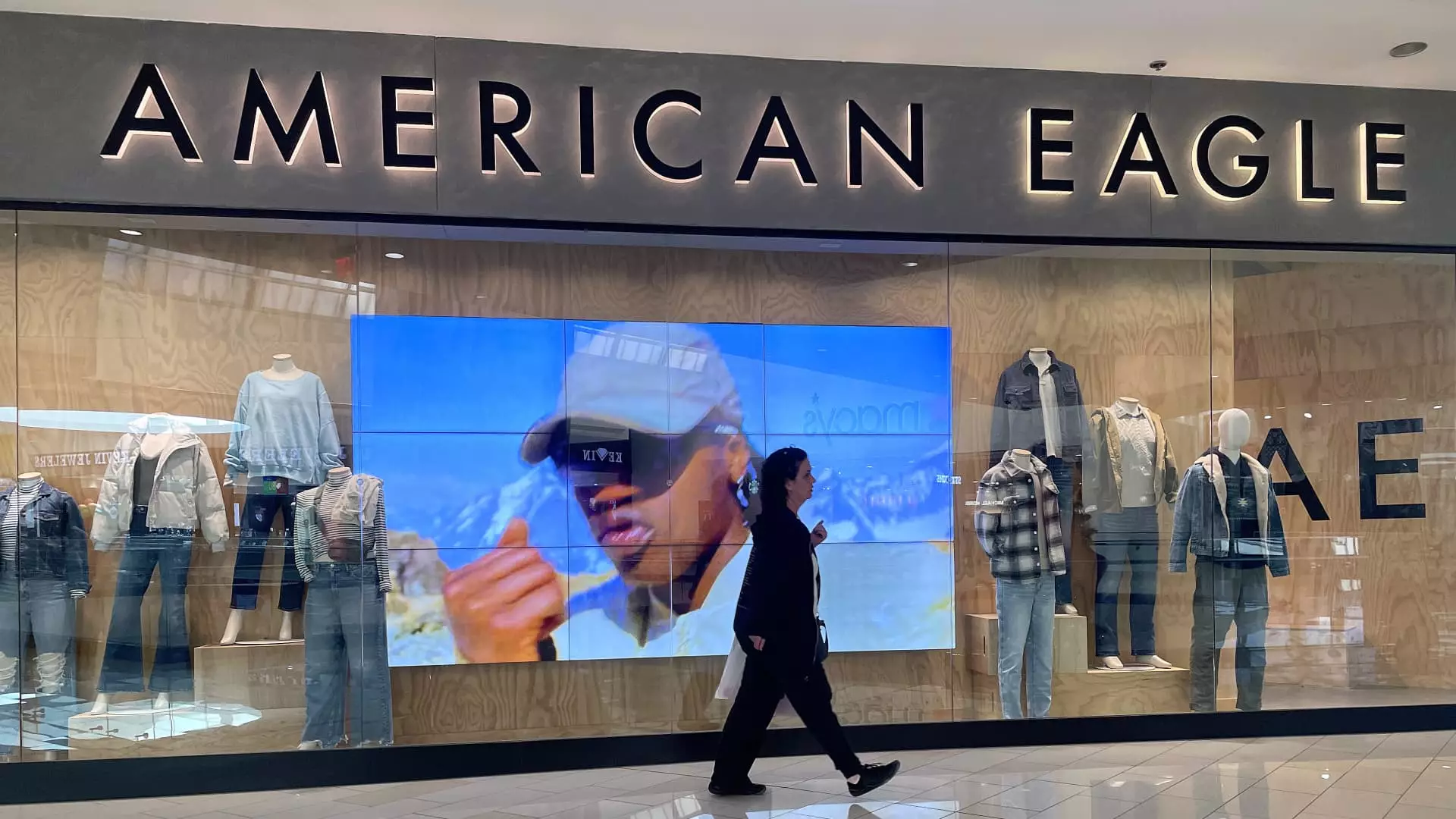In an unsettling turn of events, American Eagle Outfitters has initiated legal proceedings against the online retail giant Amazon, alleging significant trademark infringement. The dispute hinges on claims that Amazon utilized branding from American Eagle’s Aerie clothing line in its search result algorithms, which American Eagle contends has resulted in consumers being misled into purchasing “inferior quality knock-offs” instead of authentic products. Filed in the U.S. District Court for the Southern District of New York, this lawsuit raises pivotal questions about brand integrity, consumer protection, and the responsibilities that e-commerce platforms hold.
Founded in 1977, American Eagle Outfitters birthed the Aerie line in 2006, primarily targeting the burgeoning activewear and lingerie segments. Aerie is renowned for its commitment to body positivity and quality, distinguishing it from competitors in the crowded market. The crux of the lawsuit centers on Amazon’s alleged unauthorized promotion of this brand, including products that constitute a dilution of Aerie’s identity.
The Allegations of Trademark Infringement
American Eagle’s lawsuit claims that Amazon has engaged in “flagrant, unauthorized use” of the trademarks associated with both the Aerie and Offline by Aerie lines. According to the complaint, a simple Google search for Aerie products leads consumers to Amazon’s listings, where they encounter only counterfeit or subpar versions misrepresented as Aerie merchandise. This kind of deceptive marketing not only threatens the uniqueness of the Aerie brand but also raises concerns about consumer trust and brand equity in the e-commerce landscape.
Importantly, American Eagle explicitly highlighted that it had neither authorized nor intended for its products to be available on Amazon. The company’s decision to withdraw Aerie products from the marketplace, as stated in the lawsuit, aims to preserve the integrity of the brand and provide a unique customer experience detached from the overwhelming noise of third-party sellers.
The allegations also highlight a larger, persistent issue within e-commerce: the proliferation of counterfeit products. American Eagle’s lawsuit draws attention to a troubling trend where legitimate brands struggle to combat the detrimental effects of fakes sold by third-party vendors on platforms such as Amazon. This isn’t merely an isolated incident; several brands, including Birkenstock and Daimler AG, have raised similar grievances in the past regarding counterfeit products being sold on the site.
Amazon has faced increasing pressure to address these concerns, particularly as counterfeit activities become more widespread and sophisticated. The company’s marketplace, launched in 2000, has facilitated the participation of millions of third-party sellers, leading to a dual-edged sword—driving sales while simultaneously opening the floodgates for counterfeit goods.
Amazon’s Response and Ongoing Efforts against Counterfeits
As the ongoing case unfolds, it’s worth considering Amazon’s track record in combating this persistent problem. Over the years, the company has implemented measures designed to mitigate the issue of counterfeits, including assembling a specialized team to pursue legal action against transgressors, with initiatives aimed at both law enforcement and litigation. Despite these proactive measures, the platform continues to grapple with accusations regarding its efficacy in protecting brands from intellectual property theft.
While representatives from Amazon did not respond immediately to requests for clarification on the lawsuit, the company has historically maintained that it prohibits the sale of counterfeit items and actively works with brands to safeguard their intellectual property.
The American Eagle lawsuit against Amazon underscores the critical issues at the intersection of digital commerce and brand integrity. As the case progresses, the outcome could establish precedents for how e-commerce platforms manage and regulate the sale of counterfeit goods. For legitimate brands, the stakes could not be any higher; ensuring the protection of their trademarks is paramount for fostering consumer trust and, ultimately, safeguard their revenue streams.
In essence, the legal fracas between American Eagle Outfitters and Amazon is more than just a lawsuit—it’s a clarion call for a reevaluation of the responsibilities that digital marketplaces should uphold in the era of rampant imitation and online shopping. As the case garners attention, industry observers will be keenly watching to see how both companies navigate this complex terrain of intellectual property and consumer rights.


Leave a Reply